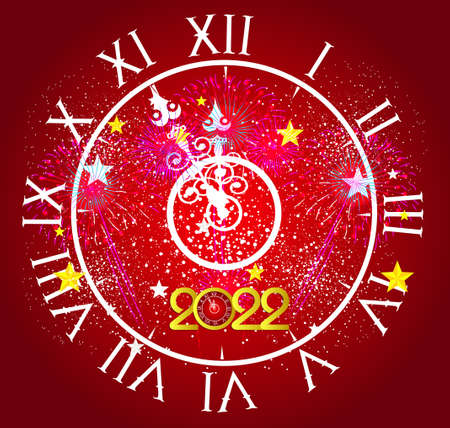1. Understanding Eclipses: Astronomical and Astrological Significance
Eclipses have fascinated Americans for centuries, from early Native American legends to the widespread excitement during recent solar eclipses. But what exactly are eclipses, and why do they hold such a special place in both astronomy and astrology?
What Are Eclipses?
An eclipse happens when one celestial body moves into the shadow of another. In simple terms, there are two main types of eclipses that people in America watch closely: solar and lunar.
| Type of Eclipse | What Happens | How It Looks | How Often |
|---|---|---|---|
| Solar Eclipse | The Moon passes between the Sun and Earth, blocking the Sun’s light. | Day turns dark for a few minutes; dramatic shadows; visible only in certain areas. | About 2-5 times per year worldwide, but rare at any specific spot. |
| Lunar Eclipse | The Earth comes between the Sun and the Moon, casting a shadow on the Moon. | The Moon often appears red or coppery (the “Blood Moon” effect); visible over wide areas. | At least twice per year, sometimes more frequent. |
Astronomical vs. Astrological Perspectives
Astronomical Significance
From an astronomical viewpoint, eclipses are natural events that help scientists study the Sun, Moon, and even Earths atmosphere. For example, many Americans remember the total solar eclipse in 2017, which stretched across the U.S. and inspired countless viewing parties and scientific experiments.
Astrological Significance
In astrology, eclipses are much more than cosmic shadows—theyre considered powerful moments for change, revelation, and transformation. Solar eclipses are seen as times to start new chapters or make bold moves, while lunar eclipses often highlight endings or emotional breakthroughs. Many American astrologers pay close attention to where an eclipse falls in the zodiac to predict its impact on national events or personal lives.
Eclipses in American Culture
Eclipses have always sparked curiosity—and sometimes anxiety—in America. Early settlers recorded awe and fear during these events, while modern Americans turn them into major social gatherings with eclipse glasses and backyard barbecues. Eclipses have even influenced art, literature, and pop culture across generations.
2. Early American Encounters with Eclipses
Eclipses have fascinated people throughout history, and early America was no exception. Before the United States even existed, both Native Americans and colonial settlers witnessed remarkable solar and lunar eclipses that left a deep impression on their cultures, beliefs, and stories.
Native American Perspectives on Eclipses
For many Native American tribes, eclipses were powerful cosmic events often linked to spiritual beliefs. Some tribes saw eclipses as warnings or messages from the spirit world. Others believed they marked times of transformation or renewal. For example, the Navajo viewed eclipses as moments to pause daily activities out of respect for nature’s balance, while the Choctaw interpreted solar eclipses as battles between good and evil spirits.
Folklore and Traditions
| Tribe | Eclipse Belief | Tradition/Response |
|---|---|---|
| Navajo | Eclipses disrupt natural order | Stay indoors; refrain from eating or drinking |
| Choctaw | Eclipse is a spiritual battle | Drumming and singing to drive away evil spirits |
| Ojibwe | Sun being swallowed by a creature | Make loud noises to scare away the animal |
| Cherokee | A giant frog eats the sun/moon | Shouting and banging pots to rescue the sun/moon |
Colonial Settlers’ Reactions to Eclipses
The first European settlers in America were often startled by eclipses. Many brought with them superstitions from Europe, but they also encountered new interpretations when observing these events alongside Native Americans. Some colonists feared eclipses as signs of impending disaster or divine judgment, while others began to use scientific tools to predict them more accurately.
Historic Eclipse Events Witnessed in Early America
| Date | Type of Eclipse | Description/Impact |
|---|---|---|
| June 24, 1778 | Total Solar Eclipse | Swept across much of the new nation; inspired awe and fear among settlers and indigenous people alike. |
| October 27, 1780 | Total Lunar Eclipse (“The Dark Day”) | A mysterious darkening in New England during the American Revolution led many to see it as an omen. |
| April 16, 1806 | Total Solar Eclipse | Widely observed along the East Coast; newspapers reported both scientific curiosity and superstition. |
The Astrological Impact of Early Eclipses in America
Eclipses often became woven into local folklore and astrology. Both Native Americans and colonial astrologers saw them as harbingers of change—sometimes good, sometimes bad. In early American astrology, eclipses were believed to affect crops, weather, leadership changes, or even signal important turning points in community life. These beliefs helped shape early American attitudes toward nature, fate, and the cosmos.
![]()
3. Eclipses During Defining Historical Moments
How Major Eclipses Aligned with U.S. Milestones
Eclipses have often coincided with turning points in American history, adding an extra layer of mystery and meaning for those who follow astrology. People throughout the centuries have noticed that these cosmic events seem to arrive right as big changes are happening, or just about to happen. Here’s a look at some of the most notable examples.
Key Eclipses and Revolutionary Events
| Date | Eclipse Type | Historical Event | Astrological Interpretation at the Time |
|---|---|---|---|
| June 24, 1778 | Total Solar Eclipse | American Revolution (Battle of Monmouth) | Many saw this as a sign of hope and renewal, marking a turning point in the struggle for independence. |
| August 7, 1869 | Total Solar Eclipse | Reconstruction Era after Civil War | Interpreted as a symbol of transformation, reflecting the nation’s efforts to rebuild and heal. |
| January 24, 1925 | Total Solar Eclipse | The Roaring Twenties & Early Jazz Age | Sensed as an omen of dramatic social change and innovation in culture. |
| July 20, 1963 | Total Lunar Eclipse | Civil Rights Movement (March on Washington followed weeks later) | Seen by some astrologers as a sign of awakening and progress toward equality. |
| August 21, 2017 | Total Solar Eclipse (“Great American Eclipse”) | Modern Era – Political & Social Polarization | Modern astrologers called it a “reset button,” highlighting deep divides but also opportunities for unity. |
American Perceptions and Folklore Around Eclipses
During colonial times, many Americans viewed eclipses with awe and sometimes fear. Some Native American tribes believed that eclipses were powerful omens, while early European settlers sometimes saw them as warnings or signs from above. As astrology became more popular in the 19th and 20th centuries, people began connecting eclipse dates with political shifts, wars, or social breakthroughs.
A Blend of Science and Belief
Even today, Americans love to gather for eclipse viewings—mixing scientific curiosity with old-fashioned wonder. Astrologers still pay close attention to when eclipses occur in relation to national milestones, looking for patterns between the skies and America’s ever-evolving story.
4. Modern-Day Eclipses and the American Psyche
The 2017 Great American Eclipse: A Nation Pauses
The total solar eclipse on August 21, 2017, known as the “Great American Eclipse,” was a historic event that captured the attention of millions across the United States. For the first time in nearly a century, a total solar eclipse traced a path coast-to-coast across the country. Schools closed, families planned road trips, and workplaces paused as people gathered to witness the celestial spectacle together.
Media Buzz and Cultural Excitement
Media coverage around the 2017 eclipse was unprecedented. News channels ran live broadcasts, social media exploded with photos and stories, and brands even released eclipse-themed products. This collective anticipation and celebration created a rare moment of national unity—one not tied to politics or sports, but to nature itself.
How Recent Eclipses Influenced Public Attitudes
| Eclipse Year | Public Reaction | Cultural Trends | Astrological Themes |
|---|---|---|---|
| 2017 | Mass gatherings, travel booms in the path of totality | Eclipse glasses sold out nationwide; themed parties and events | Focus on new beginnings, letting go of old patterns |
| 2023 (Annular Eclipse) | Increased awareness of astronomy; family viewing events | Social media challenges and viral content about safe viewing | Themes of clarity, redefining personal goals |
The Astrological Communitys Take
Astrologers in the U.S. saw these eclipses as powerful turning points for the nation. The 2017 eclipse, which passed over key American landmarks and major cities, was interpreted as a signal for collective transformation. Many practitioners highlighted its alignment with the nations astrological chart, suggesting shifts in leadership, identity, and unity.
Popular Astrological Interpretations in Recent Years
- Transformation: Eclipses are seen as opportunities for both personal and societal change.
- Letting Go: Many Americans used this time to reflect on what no longer served them—whether habits, relationships, or beliefs.
- New Beginnings: Astrologers encouraged setting intentions during eclipses for fresh starts and bold moves.
- Collective Healing: In periods of national tension or uncertainty, eclipses were framed as moments for coming together and healing old wounds.
The Eclipse Effect: Why Americans Care
Eclipses have always sparked curiosity and awe in American culture. In recent years, theyve also become touchpoints for reflection and community connection. Whether youre into astrology or just enjoy a cosmic show, these events remind us how something happening far above can bring us all a little closer here on Earth.
5. Astrological Takeaways: How Eclipses Shape the American Narrative
Recurring Themes in U.S. Eclipse History
When we look back at the major solar and lunar eclipses throughout American history, certain astrological patterns stand out. Eclipses often coincide with moments of change, awakening, and transformation in the United States. These cosmic events seem to act as energetic turning points—sometimes bringing hidden truths to light or signaling shifts in national identity and priorities.
Key Astrological Lessons from Past Eclipses
| Eclipse Date | Astrological Significance | Historical Context | Lesson for America |
|---|---|---|---|
| July 29, 1878 (Total Solar Eclipse) | Leo: Leadership, pride, visibility | Rise of industrial power and innovation | Embrace bold leadership and creativity during times of progress |
| July 20, 1963 (Total Lunar Eclipse) | Aquarius: Social change, collective vision | Civil Rights Movement gaining momentum | Push for equality and progressive ideals during social upheaval |
| August 21, 2017 (Great American Eclipse) | Leo: Self-expression, national spotlight | Political polarization & cultural self-reflection | Re-examine values and unity under public scrutiny |
Patterns Emerging from Eclipses in U.S. History
- Turning Points: Eclipses often mark the beginning or end of significant eras—think of them as cosmic reset buttons.
- Themes of Revelation: Secrets surface or hidden issues become impossible to ignore around eclipse seasons.
- National Identity Shifts: Moments when Americans are called to reflect on who they are as a people and what they stand for.
- Innovation & Reform: Many eclipses align with periods of invention, legislation, or grassroots movements that change the country’s direction.
What Future Eclipses Might Symbolize for America’s Destiny
The United States will experience more powerful eclipses in the coming years. Each event brings fresh opportunities—and sometimes challenges—for collective growth. For example, an upcoming eclipse in Aries could highlight themes around courage, independence, and taking bold new steps as a nation. Astrologers suggest these future eclipses might symbolize:
- A call for unity amidst division: Eclipses can inspire Americans to come together during turbulent times.
- A chance to heal historical wounds: Hidden issues from the past may resurface, offering an opportunity for reconciliation.
- A reminder to innovate: The country may be nudged toward breakthroughs in technology, science, or social policy.
- A shift in global role: Some eclipses may push America to redefine its place on the world stage—either by leading or collaborating differently.
Eclipse Wisdom for Today’s America
If there’s one takeaway from U.S. eclipse history, it’s that these celestial moments ask us to pay attention—to ourselves and to each other. They encourage reflection, adaptability, and courage in times of uncertainty. By understanding these patterns, Americans can use eclipse energy not just as a warning sign but as a chance to grow stronger together and write new chapters in their collective story.


